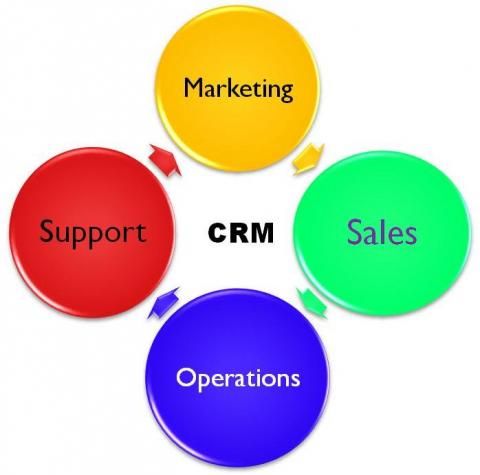
The Role of CRM in Enhancing Customer Experience and Satisfaction
Customer Relationship Management (CRM) systems have become indispensable tools for businesses aiming to enhance customer experience and satisfaction. By providing a comprehensive view of customer interactions and streamlining processes, CRM systems help businesses build stronger relationships, anticipate customer needs, and deliver personalized service. This article explores the crucial role of CRM in enhancing customer experience and satisfaction.
1. Centralized Customer Information
One of the primary functions of a CRM system is to centralize customer information. By consolidating data from various touchpoints—such as emails, social media, sales interactions, and support tickets—CRMs create a unified customer profile. This centralized repository allows businesses to access accurate and up-to-date information quickly.
Having all customer data in one place enables customer service representatives to provide informed and consistent service. When a customer contacts the business, the representative can quickly retrieve their history and preferences, leading to more efficient and personalized interactions.
2. Personalized Customer Interactions
Personalization is key to enhancing customer experience and satisfaction. CRM systems analyze customer data to identify preferences, purchase history, and behavior patterns. This information can be used to tailor interactions and offers to individual customers.
For example, a CRM can suggest relevant products or services based on a customer’s previous purchases or browsing history. Personalized marketing campaigns can be created to target specific customer segments with offers that are most likely to resonate with them. Such personalized interactions make customers feel valued and understood, significantly boosting satisfaction.
3. Improved Customer Service
CRM systems play a pivotal role in improving customer service by streamlining support processes and enabling quicker resolutions. With a CRM, customer service representatives can track and manage customer inquiries, complaints, and support tickets efficiently.
Automation features in CRMs, such as automated ticket routing and follow-up reminders, ensure that customer issues are addressed promptly. Additionally, CRM systems can provide representatives with access to knowledge bases and historical interaction data, helping them resolve issues faster and more effectively.
4. Enhanced Communication
Effective communication is fundamental to customer satisfaction. CRM systems facilitate better communication by ensuring that all customer-facing teams have access to the same information. This prevents the common issue of customers having to repeat their concerns to different representatives.
CRMs also support multi-channel communication, allowing businesses to interact with customers via their preferred channels, whether it’s email, phone, social media, or live chat. This seamless communication experience contributes to higher customer satisfaction.
5. Proactive Customer Engagement
CRM systems enable businesses to engage with customers proactively. By analyzing customer behavior and interaction history, CRMs can trigger timely follow-ups and personalized offers. For instance, if a customer hasn’t made a purchase in a while, the CRM can automatically send a re-engagement email with a special offer.
Proactive engagement helps in anticipating customer needs and addressing issues before they escalate, thereby improving the overall customer experience.
6. Customer Feedback and Insights
Gathering and analyzing customer feedback is crucial for improving products, services, and customer experience. CRM systems can collect feedback through surveys, reviews, and direct interactions. This feedback is then analyzed to identify common issues, preferences, and areas for improvement.
Businesses can use these insights to make data-driven decisions that enhance customer satisfaction. For example, if feedback indicates that customers are unhappy with response times, the business can take steps to improve their support processes.
7. Loyalty and Retention
A satisfied customer is more likely to become a loyal customer. CRM systems help businesses build loyalty by recognizing and rewarding repeat customers. Loyalty programs can be managed through CRM systems, offering personalized rewards and incentives based on customer behavior and preferences.
By tracking customer interactions and identifying at-risk customers, CRM systems also enable businesses to implement retention strategies. Proactive measures, such as personalized offers or check-in calls, can be taken to re-engage customers and reduce churn.
8. Real-Time Analytics and Reporting
CRM systems provide real-time analytics and reporting tools that allow businesses to monitor and analyze customer interactions and satisfaction levels continuously. These insights help in identifying trends, measuring the effectiveness of customer service initiatives, and making timely adjustments to strategies.
For example, real-time data can highlight a sudden increase in customer complaints, prompting immediate investigation and resolution. Continuous monitoring ensures that businesses can maintain high standards of customer satisfaction.
Conclusion
CRM systems are integral to enhancing customer experience and satisfaction. By centralizing customer information, personalizing interactions, improving customer service, enhancing communication, and enabling proactive engagement, CRMs help businesses build stronger relationships with their customers. The insights gained from CRM analytics further allow for continuous improvement and informed decision-making. In today’s competitive market, leveraging CRM technology is essential for businesses aiming to exceed customer expectations and achieve long-term success.

